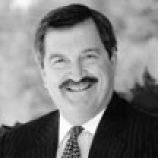WHAT GOES DOWN comes around. Unions, other stockholders, and the business press all cheered two weeks ago when John W. “Jack” Creighton Jr. was hastily brought on as the new chairman and CEO to pull ailing United Airlines out of its post-Sept. 11 downward spiral. Creighton is revered in the loftier corporate reaches for working a similar, though less desperate, turnaround on the Federal Way-based wood-products giant Weyerhaeuser, from which he retired as CEO in 1997. He’s also been a leading Seattle eminence—a director or trustee of everything from the Madrona Venture Group to Zion Prep and Seattle’s own World Trade Center. Now he’s followed Boeing’s brass to Chicago, United’s home base.
The one caveat to Creighton’s appointment is that, though he’d sat on United’s board, he had no working experience in the airline business. But, proving that everything is connected in the new globalism, he has held another position closer to the events that sent one United Boeing jet crashing into the World Trade Center and another into the Pennsylvania hills two months ago. Since 1995, Creighton has sat on the board of the California-based oil multinational Unocal-during the period in which Unocal became the main American corporate suitor seeking to do business with the Taliban and pushing for closer U.S. ties to Taliban-controlled Afghanistan.
Nothing strange about that—for Unocal. It’s often shown itself to have a strong stomach, even as oil companies go, for working in war zones and dealing with unsavory regimes. It completed a billion-dollar gas pipeline in Myanmar (formerly Burma) even after Texaco and Arco bowed out when human-rights groups protested and government partners were accused of conscripting forced labor. Seattle activist Larry Dohrs of Seattle Burma Roundtable, who’s tilted at Unocal for years, calls it “the bottom-feeder of the oil business.”
In 1995, amidst the scramble for Central Asia’s newly opened oil and gas bonanza, Unocal undertook an effort that would prove even more controversial: to build a pipeline from Turkmenistan through Afghanistan and Pakistan to the Gulf of Arabia. It was competing with the Argentine energy firm Bridas, which also wooed the Taliban.
In December 1997, Unocal hosted Taliban delegates in Texas and, according to news reports, even took them to the mall and beach. It also gave nearly $1 million to a job-training program in the Taliban stronghold of Kandahar, out of the $15 million to $20 million spent on the pipeline effort. It hired former U.S. ambassador to Pakistan Robert Oakley to press its case, special ambassador John J. Maresca to, in Unocal media chief Barry Lane’s words, “look at corporate responsibility globally,” and Henry Kissinger to cap the Turkmenistan side of the deal. “We didn’t focus on the Taliban,” Lane insists. “We also sponsored a training program in Northern Afghanistan” and hosted some of the warlords now in the Northern Alliance. But with the Taliban gaining ground and controlling the planned pipeline route through southern Afghanistan, some focus was inevitable. “If this leads to peace, stability, and international recognition, then this is a positive development,” Unocal vice president Chris Taggart declared after the Taliban took Kabul in 1996.
Unocal quickly retracted that statement, but as Pakistani journalist Ahmed Rashid writes in his authoritative best-seller Taliban, it and other gaffes convinced all the other players “that the U.S.-Unocal partnership was backing the Taliban and wanted an all-out Taliban victory.” Unocal’s eager approach mirrored the complacent, fumbling Afghan dealings of the U.S. government, which likewise placated the Taliban and downplayed their abuses. Nevertheless, Lane recounts, “the Taliban favored Bridas over us because we kept talking to them about human rights.” Rashid’s book confirms that Unocal urged the Taliban “to improve their human-rights image.” They didn’t, but Unocal hung in while women’s groups protested against it in the United States and Secretary of State Madeleine Albright called Taliban practices “despicable,” even after Taliban guest Osama bin Laden declared a fatwa against the United States in early 1998. Unocal finally had to clear out of Afghanistan in August 1998 after terrorists bombed two embassies in Africa and the United States bombed Al Qaeda camps in retaliation. In December 1998, it formally withdrew from the project. That withdrawal is the first point noted at the top of Unocal’s Web site, followed by the assurance, “We do not support the Taliban in any way whatsoever.”
Creighton was elected chairman of Unocal’s board last year but stepped down Aug. 31. Unocal’s Lane says only that this resignation was prompted by his United Airlines appointment and refers other inquiries to Creighton. United representative Susana Leyva says he’s now putting all his energies into the very big job he’s taken on there and tenders this official statement: “Any inquiries regarding Unocal or its business practices—past, present, or future—should properly be directed to the Unocal Corporation.”
Creighton remains on Unocal’s board.








